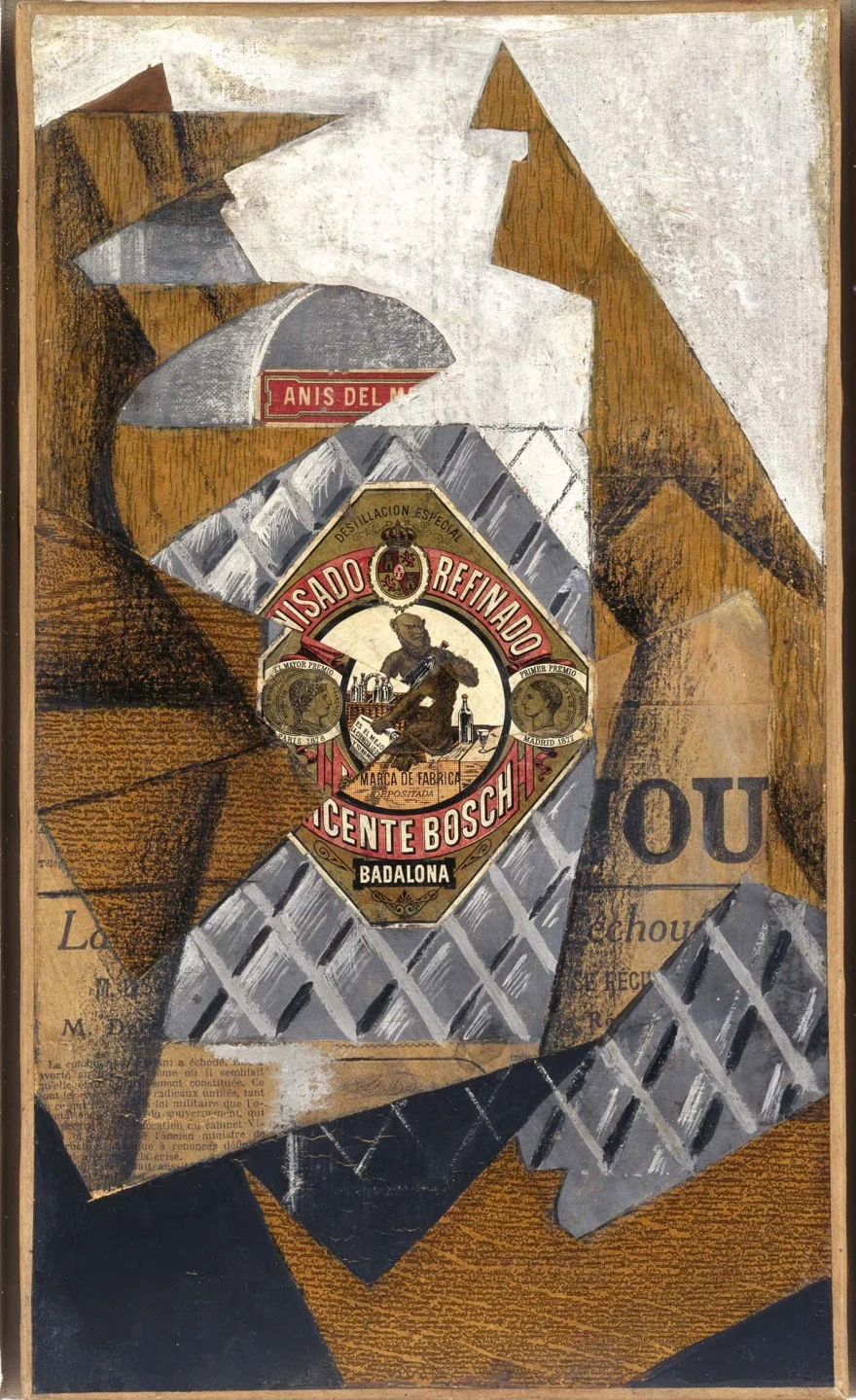
La bouteille d'anis (The Bottle of Anis)
- Technique
- Oil, collage and graphite on canvas
- Dimensions
- 41,8 x 24 cm
- Year of entry
- 2000
- Registration number
- AD01818
- Date
1914 (June)
The works Juan Gris began his exploration of Cubism in 1911 which earned him rapid acclaim: exhibitions with the La Section d’Or in Paris and in galleries in France and other countries; he also worked solely with renowned gallerist Daniel-Henry Kahnweiler, while the most distinguished critics wrote glowingly about his work. Among these writers was Carl Einstein, a personal friend of the artist since the early 1920s and with whom he shared the vision of Cubism as a visual interpretation of the modern world. Similar to Pablo Picasso and Georges Braque, Juan Gris began to experiment with collage in 1912, a technique which, upon incorporating fragments of real objects, customarily on paper, replaced or completed his graphic representation. Moreover, he often utilised these collages to conceal messages subject to interpretation.
The core element Gris uses in this composition is a label from a bottle of Anís del Mono, a popular brand of liqueur among turn-of-the-century Spanish artists and which had already appeared in the Cubism of Picasso and Diego Rivera. The inscription “Visado Refinado” is perhaps a reference to his status as an exile after having fled Spain to avoid military service. While in France, moreover, at the height of the war, he risked expulsion due to his status as foreigner. A further hidden message could lie in the names of the three cities on the label: Paris, Madrid and Badalona, a place name which, morphologically, closely resembles Barcelona. The three cities are points of reference for the creators of Cubism: Paris, through Braque, Badalona/Barcelona, via Picasso, and Madrid, in being the place of birth of Gris, who had no qualms about being included in the movement’s founding group.
Raúl Martínez Arranz